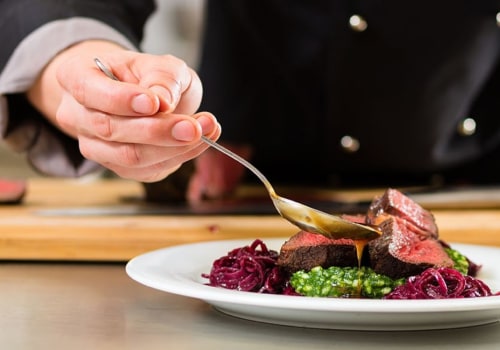While a private chef is employed to be at home every day from morning to night, a personal chef will prepare several meals a week or even a month in advance in just 2 hours. The meals are then packaged with reheat instructions so you can heat them however you want.
Private chef
versus personal chef: It's easy to think that the terms “private chef” and “personal chef” are interchangeable and refer to the same function. But while a private chef and a personal chef have a lot in common, they are different and different jobs.Like a personal chef, the fee for paying a private chef varies depending on the amount of training you have, where in the world you work, and the level of experience. A client's personal wealth may also take into account the amount paid to them. Annual salaries can range from £30,000 to £100,000 more. A private chef may work in a large house where family or individuals cannot cook on their own.
Sometimes private chefs are used for college students who don't have time to prepare their own meals or for a big house with lots of hungry inhabitants. A private chef often works exclusively for clients who can pay for their daily services. They're part of the client's team, so private chefs often work where their client needs them, whether it's their private residence, hotel, yacht and more. A personal chef can prepare healthy meals for you in advance, but a private chef can serve you fresh dishes and take you on a trip to different kitchens at any time.
The requirements for private chefs and personal chefs are the same. A private or personal chef must have quality training. This training may come from a culinary school and experience in the culinary profession (note that some chefs are still trained in apprenticeship programs). If you have specific dietary needs, good training is especially important.
A private chef works full time for a client in his or her private residence, whether it's a house, a hotel or a yacht. If you're considering a variety of options, you've probably thought about becoming a personal or private chef. Restaurants undoubtedly elevate the dining experience, but recent events paved the way for the emergence of a personal chef and a private chef with the ability to serve gastronomic dishes beyond their typical setting. He founded the American Personal and Private Chef Association (APPCA) and, until recently, spent the past four decades educating chefs and promoting this option as a legitimate and alternative career path, especially female chefs.
Like a personal chef, a private chef must undergo formal training at a culinary school or university up to the undergraduate level, if possible. The private chef's job duties may also include traveling with your client to second homes, vacation destinations, or other travel destinations. As restaurants take a turn and customers scramble to find ways to enjoy restaurant-quality food in a safe environment, the demand for chefs has skyrocketed. The chef can work in one house on Mondays, in another every other Tuesday, in another family on Thursdays, etc.
Whatever your experience, if you're considering working as a personal chef, it's important to remember that you run a business and a kitchen, so make sure you get the training you need in the areas you think you need it. They prepare all fresh meals and snacks for daily household consumption and cook for private functions. Now that you understand the pros and cons of a private chef, let's start taking a closer look at some of the reasons why you might consider a personal chef instead of a private chef. Private chefs also often work in large houses that have other professional support staff, such as butlers and maids.
For more information, see the “personal chef training section”, as mentioned above. Many private chefs also have extensive experience in professional kitchens in five-star hotels or fine dining restaurants. . .






